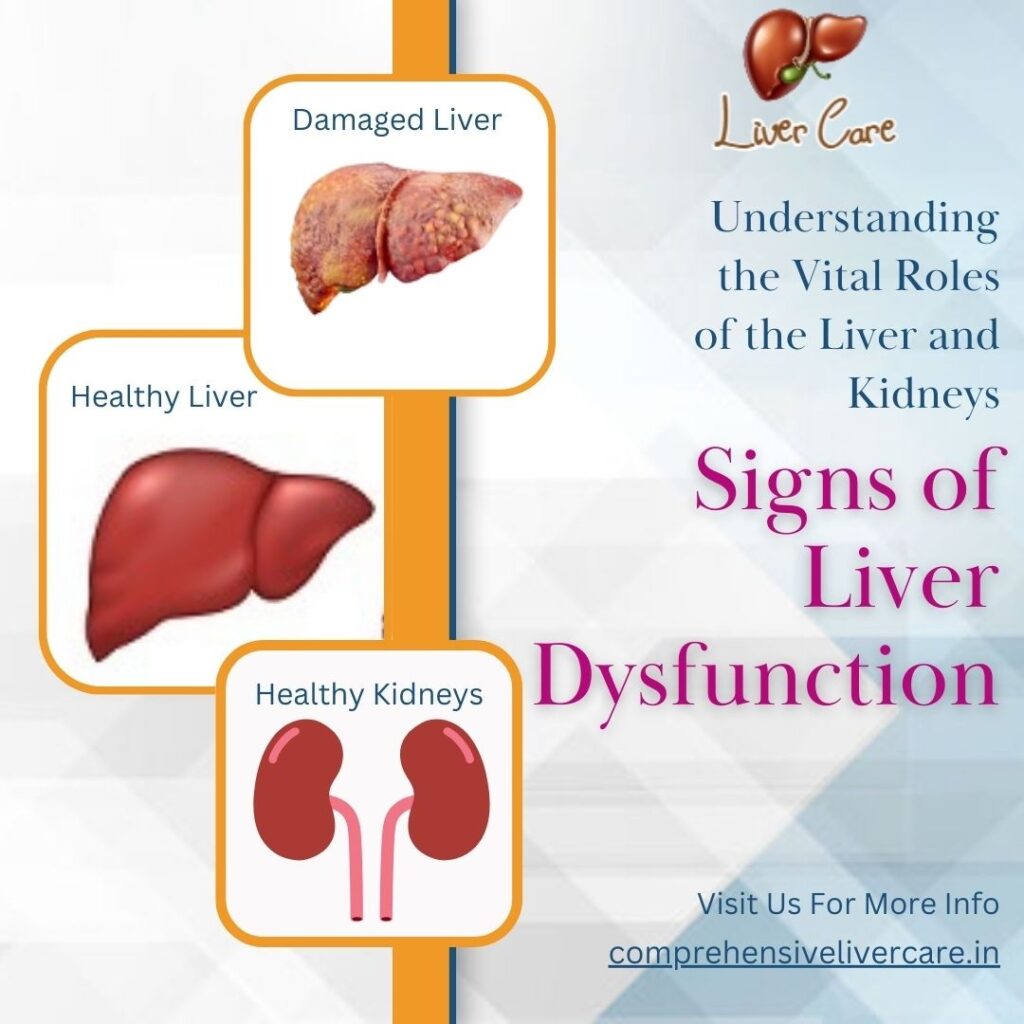The liver and kidneys are crucial organs that perform essential functions to maintain our health and well-being. The liver, located in the upper right abdomen, is a powerhouse responsible for metabolism, detoxification, bile production, storage of vitamins and minerals, synthesis of important proteins, and immune function. On the other hand, the kidneys, situated on either side of the spine, play a key role in filtering waste products from the blood, maintaining electrolyte balance, regulating blood pressure, ensuring acid-base balance, stimulating red blood cell production, and controlling fluid balance.
Understanding the signs of liver problems is crucial to improving health in other ways through early intervention. Symptoms such as jaundice (yellowing of the skin and eyes), abdominal pain and swelling, chronic fatigue, nausea, loss of appetite, dark urine, pale stools, easy bruising, swelling in the legs and ankles, itchy skin, and cognitive impairment can indicate liver distress.
The liver is a vital organ with numerous essential functions, including:
- Metabolism: The liver plays a central role in metabolizing carbohydrates, proteins, and fats. It converts excess glucose into glycogen for storage and later use.
- Detoxification: The liver detoxifies chemicals and metabolizes drugs. It filters and removes toxins from the blood, including alcohol and medications.
- Bile Production: The liver produces bile, a substance that helps in the digestion and absorption of fats in the small intestine.
- Storage: It stores vitamins (A, D, E, K, and B12) and minerals (iron and copper), as well as glycogen, which is a source of energy.
- Synthesis: The liver synthesizes important proteins such as albumin, which maintains blood volume and pressure, and clotting factors that are essential for blood coagulation.
- Immune Function: It contains Kupffer cells, which are part of the immune system and help remove bacteria and foreign particles from the blood.
- Regulation of Blood Clotting: It produces proteins necessary for blood clotting and helps maintain a balance in blood coagulation.
Functions of the Kidney
The kidneys are essential organs responsible for several crucial functions:
- Filtration: The kidneys filter waste products, toxins, and excess substances from the blood to form urine.
- Electrolyte Balance: They maintain the balance of electrolytes such as sodium, potassium, and calcium, which are vital for nerve and muscle function.
- Regulation of Blood Pressure: The kidneys regulate blood pressure by controlling the volume of blood (through excretion of excess fluid) and releasing the enzyme renin, which adjusts blood vessel constriction.
- Acid-Base Balance: They help maintain the body’s acid-base balance by excreting hydrogen ions and reabsorbing bicarbonate from urine.
- Erythropoiesis: The kidneys produce erythropoietin, a hormone that stimulates the production of red blood cells in the bone marrow.
- Fluid Balance: They regulate the body’s fluid balance by controlling the volume of urine produced.
Signs of a Bad Liver
When the liver is not functioning properly, it can lead to various signs and symptoms, including:
- Jaundice: Yellowing of the skin and eyes due to a buildup of bilirubin in the blood.
- Abdominal Pain and Swelling: Pain or discomfort in the upper right side of the abdomen, along with swelling (ascites) due to fluid accumulation.
- Chronic Fatigue: Persistent and unexplained fatigue or weakness.
- Nausea or Vomiting: Feeling nauseous or experiencing frequent vomiting.
- Loss of Appetite: Reduced desire to eat, which can lead to weight loss.
- Dark Urine: Urine that is dark in color due to excess bilirubin.
- Pale Stools: Stools that are pale or clay-colored because of the lack of bile reaching the intestines.
- Bruising Easily: Increased tendency to bruise or bleed due to a decrease in the production of clotting factors.
- Swelling in Legs and Ankles: Fluid retention leads to swelling in the lower extremities (edema).
- Itchy Skin: Persistent itching due to bile salt accumulation under the skin.
- Confusion or Cognitive Impairment: Hepatic encephalopathy, a condition where toxins build up in the brain due to poor liver function, leading to confusion, forgetfulness, or changes in behavior.
The liver and kidneys are crucial organs that keep our bodies functioning properly. Understanding the essential roles of these organs helps us stay healthy and address any potential issues early.
Hey there! The topic is just for knowledge purposes only. If you need any liver or kidney-related medical services, please go through the following link Best Liver Surgeon in Bangalore, or consult with specialists
